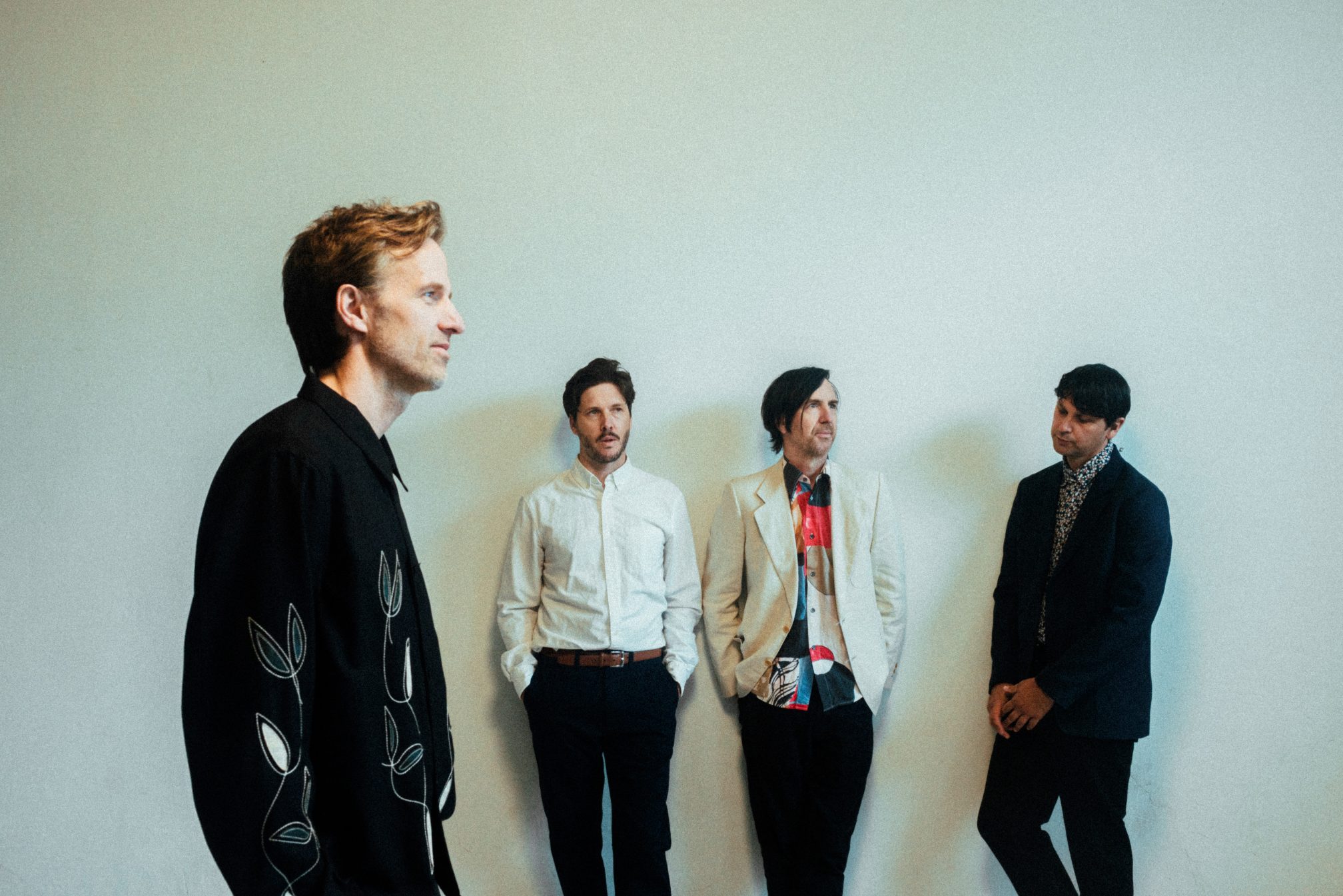 INTERVIEWS
INTERVIEWS
Cut Copy on career defining 'Moments'
Over 20 years into the career, Cut Copy remain a rare anomaly in electronic music, a band that continues to reinvent itself while staying true to what makes it unique.
In an increasingly fast-paced music culture, the enduring legacy of a group is a fragile concept. Whether pioneers of a certain sound, a certain space or of a different era, it can be tough for many musicians to continue leaving a meaningful impact, sometimes decades into their career.
Now over 20 years into theirs, Cut Copy remain a rare anomaly in electronic music, a band that continues to reinvent itself while still staying true to what makes it unique.
Their seventh studio album, ‘Moments’, released just last month, sees the Naarm/Melbourne-originating band returning to many parts of where their sound began. The album draws from a wide variety of influences, both modern and traditional, and works with a huge variety of instruments, both raw and refined.
To speak on the process for ‘Moments’, and understand where it sits in the grand scheme of Cut Copy’s own musical universe, we secured a moment of their time.
Q: Guys, thanks so much for making the time to chat. ‘Moments’ is your seventh album. I find that in conversation, I’m regularly asking artists what ‘learnings’ they’ve taken from their career into newer projects, but in many ways, this feels like a return to something rather than an ‘improvement’. How have you approached this record compared to the ones before it?
CC: I think all our albums have been a progression or an exploration of something new. At times, it's reflected in us getting excited about a particular style of music and filtering that through a cut copy lens. And other times we've just tried to make the most interesting album we can that represents us as a band at this particular moment in time. And I think that's probably what happened with "Moments".
In making our last album, 'Freeze, Melt', I did a lot of writing separate from the band, then we got together for a concentrated studio session with the whole band to flesh the songs out and get them to the finish line. This is largely because Ben and Tim are based in the US, so it's harder for us to find time in the same place. But in some ways, having less time keeps things more focused. This time around, we adopted the same studio approach, but we wanted to extend the blueprint of the last album into more dance-floor and energetic territory. So to me, it actually does feel like a bit of an evolution, but repurposing the skills we learned from our last album.
Q: I’ve seen you say that this record was inspired by early hip-hop, electro, proto-house, and punk-inspired disco. What is it about those sounds, and this point in time, that drew you to them?
CC: I think those eras are hugely inspiring to me because they represent the embryonic stages of new musical genres. When no one has established the rules yet, people are free to try weird things and just experiment. It's like the wild west - it's chaotic, and lawless, but they're something freeing about that. And it feels like fertile ground for some really interesting music.
That’s what I love about these genres. It’s also just familiar to the way that I write music, because I struggle to stay in just one lane when I'm working on songs. It always ends up being a hybrid of different styles and sounds. And probably that’s part of the chemistry of cut copy’s music.
Q: I read that Vegyn and Four Tet were particular influences on ‘Moments’. What is it about their music that stands out to you, & how do you think you interpreted that inspiration on the record?
CC: They are a couple of producers who have been around a while, but have consistently been making great music. They’re such forward-thinking artists. I think they’ve taken on board a lot of the sounds of modern R&B production but aren’t limited to that style. They stretch this to house, techno, guitar music, and even free jazz.
Four Tet, in particular, has had such a long career trying so many different things. Each era of his music is a really interesting exploration of something new, and as an artist who has been working for many years, it’s inspiring to see someone who isn’t afraid to experiment and reinvent their approach.
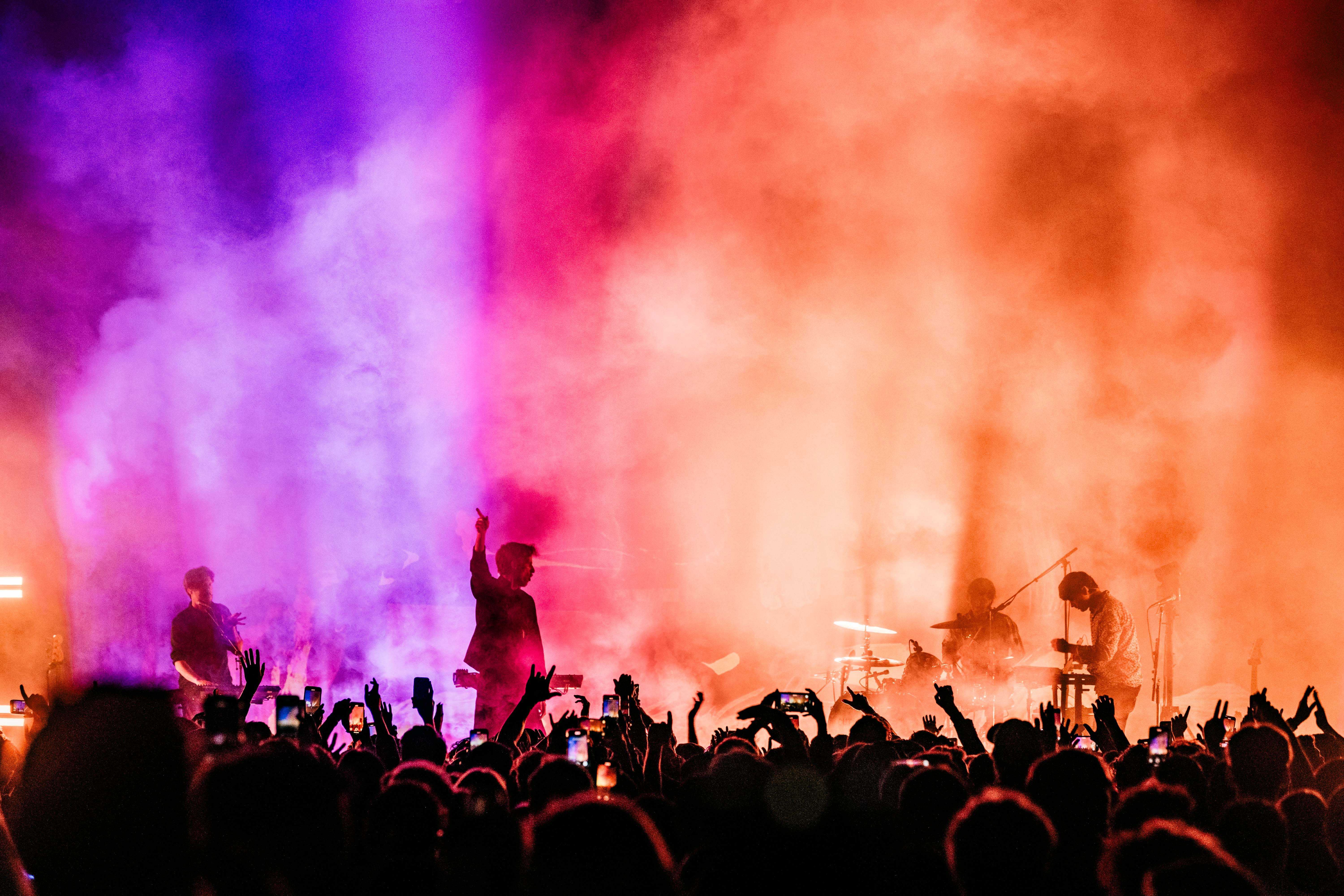
Q: Were there any new tools or production techniques you leaned into heavily this time around?
CC: A lot of the time, I was searching for immaculate production, glassy synths and refined drum sounds - wanting things to sound modern and polished. But then we’d juxtapose that with really organic ‘human’ sounds. A big part of recording with the whole band was searching for unusual instruments, like choirs, asian flutes, dubbed out percussion, pianos manipulated through glitch pedals, and even atmospheric recordings that I’d taken in iPhone voice notes. We were in a studio near Byron Bay, exploring any weird instruments we could find to give the songs an interesting palette.
Electronic sounds, as a rule, are fairly abstract. They don’t have much character, but the more visceral ‘human’ sounds are the ones that helped create a special world for the album to exist in. The little bits of imperfection, like breaths on a vocal or room sounds on a drum take, or fingers sliding on guitar strings, really give things a sense of the human element in the music. And I love that we’ve managed to marry both the electronic and human side in the making of Moments.
Q: What does the title itself, ‘Moments’, mean to you both as a band, friends, and in the context of our world?
CC: It probably came from the process of making the album originally. It began during pandemic lockdowns where we had tours canceled and I was stuck at home looking for something to do. So I started writing a song idea each day as an exercise. The idea was create each song about a different idea as a snapshot of how I was feeling that day or whatever was in my head. So over time I ended up with all these little vignettes that you might describe as ‘moments’. The best of these were the ones we worked on with the rest of the band and made it onto the album.
I think more generally it’s probably just a way of thinking about life; as a collection of these different ‘moments’ and experiences that you travel through. And I suppose the album charts a lot of the things that were happening around me over the course of making the record.
Q: It feels rare to see collaborators listed on a Cut Copy album, and yet on ‘Belong To You’ you feature vocals from Kate Bollinger and pedal steel from Graham Lee. What did their presence change about your process on that track?
CC: Yeah, we’ve always been pretty self-sufficient with the way we make our songs. Maybe we always felt like we had a surplus of ideas without bringing in someone else. But for whatever reason, we thought it would be really cool to work with some other people on 'Belong to You'. It felt like a single from relatively early stages of the writing process and had this wistful romantic quality to it. So we had this idea that a duet would be a nice touch.
When we heard Kate’s voice on it, I immediately imagined a pedal steel guitar as the perfect accompaniment. It’s an instrument that has a real country sound to it, but I love the idea of that being transposed on an electronic track. Graham Lee is a living legend, having played in The Triffids and on the KLF's White Room album, making him a dream choice. Ironically, when we tracked him down, it turned out he lived 5 minutes from my House, so I think it was meant to be.
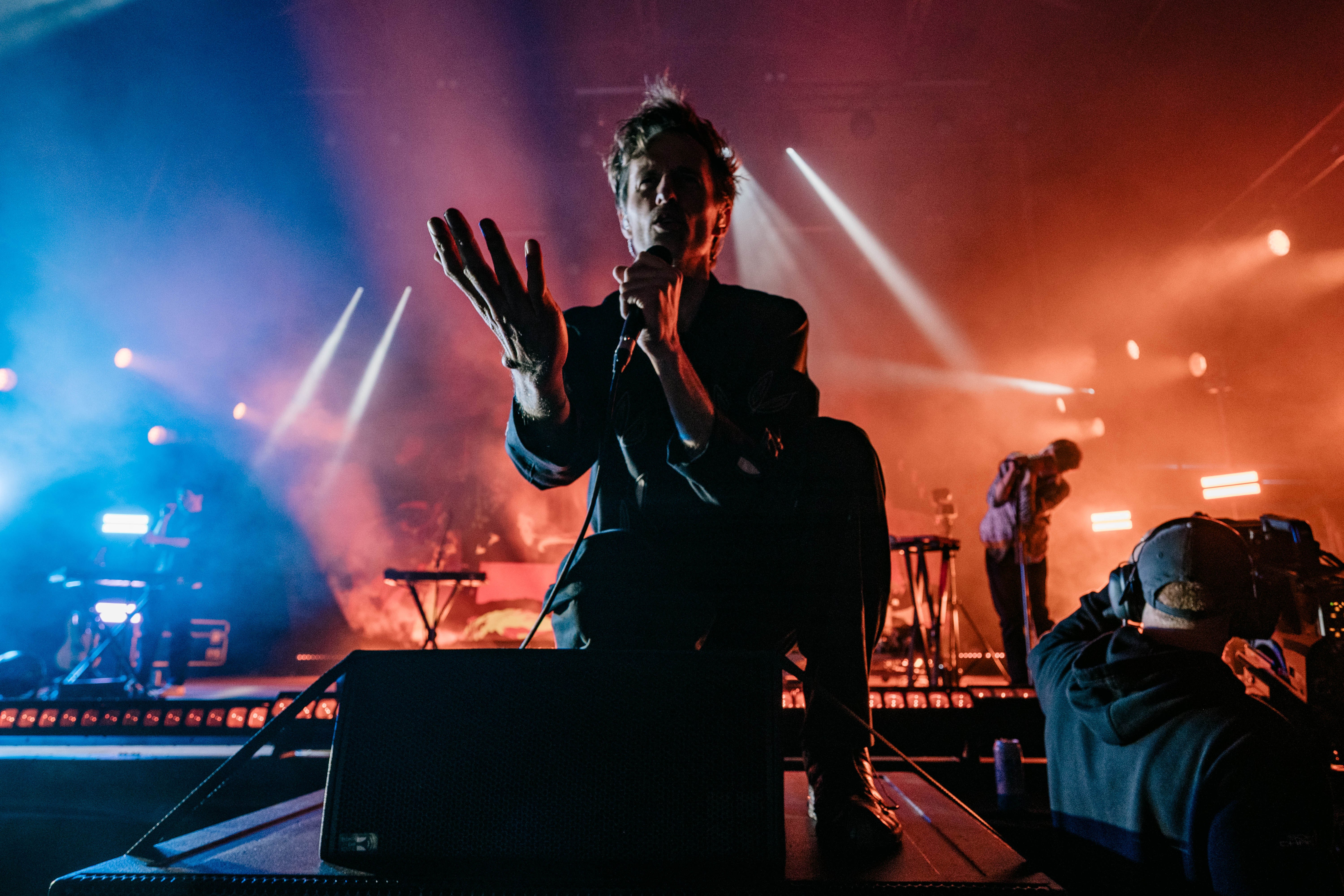
Q: ‘When This Is Over’ also features a children’s choir. What was the thinking behind including these kinds of voices?
CC: In making the new album, a lot of the time we were searching for contrast; changing the sound palette from song to song and between different sections in the same song. And we wanted the second half of 'When This Is Over' to go somewhere completely different.
The quality of children’s voices is such a unique thing, and it’s something I’d always wanted to feature on a Cut Copy song. And on this one, we finally got our chance. A children’s choir is like the ultimate acoustic instrument, with a naive beauty to it. It’s imperfect, but at the same time, such a magical sound. When we were recording, we never got a perfect take, but I had to remind myself that it’s not really the point.
Q: Remixes have long stood as a way for other artists to enter the Cut Copy universe. What is the process of selecting producers that you want to take on your tracks?
CC: Often it’s a matter of listening back to our song and imagining “who could take this song to somewhere interesting or unexpected”. In the past, it has been about trying to get a more dance floor version of our song so it’s playable in clubs, but that’s not always the case. And even though that’s important, sometimes the less 'dancey' remixes are more interesting.
For instance, on the last album, we had Kaitlyn Aurelia Smith mix one of our songs, which almost went into modern classical composer territory. Or with our song Free Your Mind, we had Spiritualized do a guitar-based cover.
Q: Have you got anyone in mind to rework any of ‘Moments’?
CC: Yeah we do, but I’m not going to give anything away just yet!
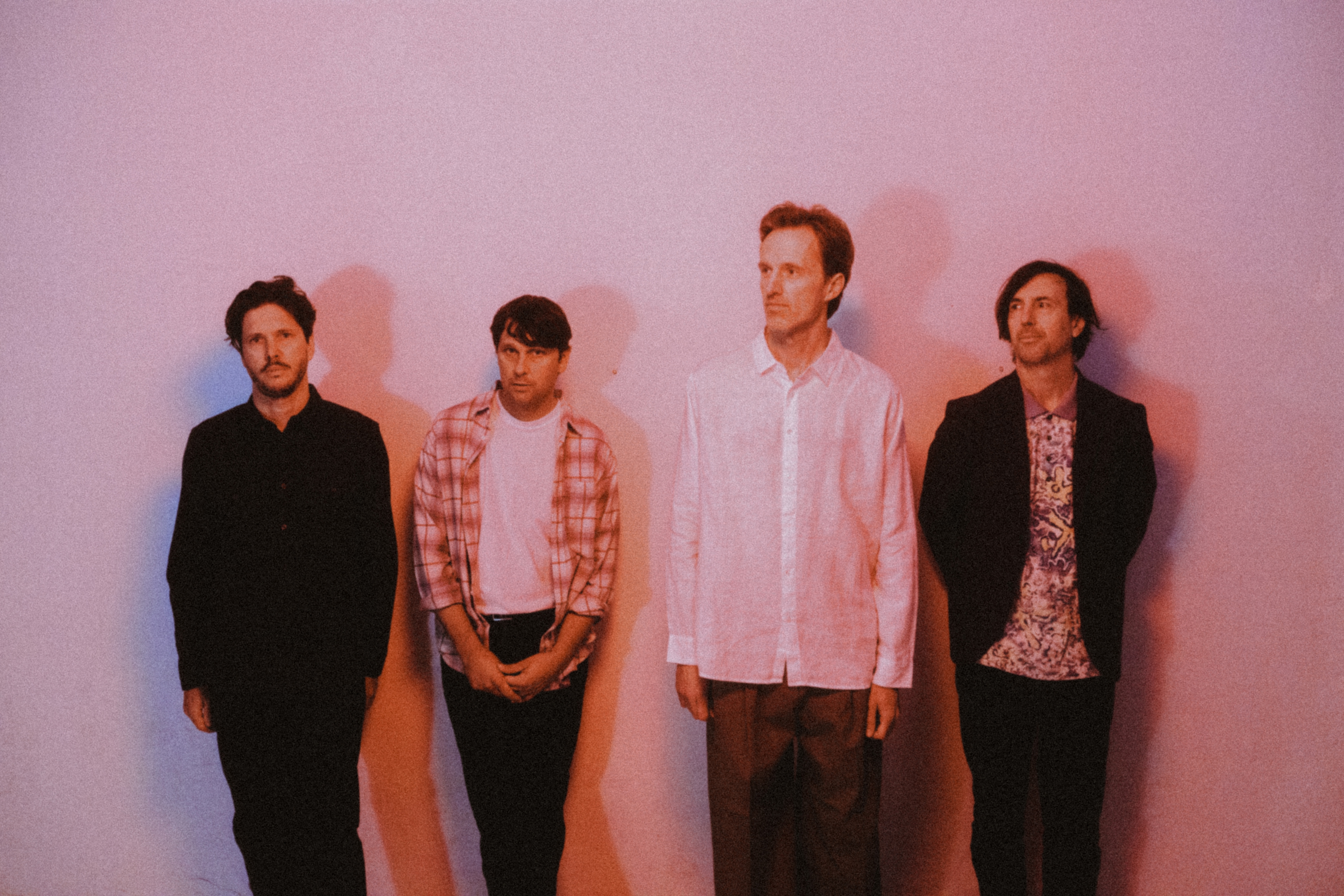
Q: Cut Copy has always had one of its feet planted firmly on the dancefloor. How do you stay tapped into what’s happening in electronic music while also evolving as a band?
CC: In the current age of social media, I feel like there’s never been an easier time to stay connected with dance music, even if you never set foot in a club. Having said that, I do try to get out to see DJs and artists whenever I can. You can’t really replace the energy of being part of a heaving dance floor.
There’s something freeing about letting yourself go and being swept up with what a DJ is playing. It always charges up my creative batteries when I have one of those experiences. But also I’m always trying to keep tabs on new electronic music via radio, whether it’s BBC, NTS, Rinse FM or Melbourne’s Skylab radio. I find listening to someone’s hand-curated selections infinitely more interesting than being spoon-fed songs via the algorithm.
Q: DJing has been an important part of Cut Copy’s legacy. What do you, with all of that experience, think of the current climate for dance music, particularly within Australia?
CC: Obviously, it’s changed a lot since I first began. For starters, I’m no longer having to go to a record shop each week to source new vinyl to play. And although I’ve got nostalgia for the person-to-person aspect of old school record shopping and the more involved quest to find new music to play, and just the beauty of vinyl itself, I don’t miss lugging those heavy vinyl bags around if I’m completely honest. That always sucked.
But I do think the shift to digital music has allowed a lot more people access to more interesting and obscure music, which can’t be a bad thing. And since Cut Copy started, Australia has gone from being a backwater for electronic music to a place with a flourishing scene with world-class artists and amazing niche scenes and DJs in every city. The past 20 years have been an amazing coming-of-age.
Q: Are there any artists or scenes that you’re finding really exciting or interesting?
CC: I’m a big fan of RONA who is an awesome Kaytetye artist making really forward thinking dance music. We met a few years back via Sam from Ara Koufax when she was putting out her first EP, and she’s really developed as an artist since then. Definitely one to watch for the future.
Q: Cut Copy is always moving through sound, whether that be forward, sideways, or backwards. How do you think you got to this point musically, now that you’re here?
CC: Honestly I don’t know. I never thought Cut Copy would still be going after 5 or 10 years, far less 20 and beyond. We’ve never really overtly tried to follow music trends or try to go commercial for the sake of appealing to a wider audience. We’ve always just followed our own musical curiosity and tried to keep searching for new sounds and things to explore.
I think we’ve been fortunate that our music has really resonated with audiences here and internationally from our first album onwards. I guess as a pure music fan myself I think about how records come to be part of the fabric of my life experience. Listening to song or album might take you back to a time of your life and it’s indelibly tied in with memories and life experiences. And I think that’s what’s happened with our music for a lot of people. It still trips me out a little bit that music I made in my bedroom, while trying not to wake my housemates is something that’s held dear by so many people, even 20 years on.
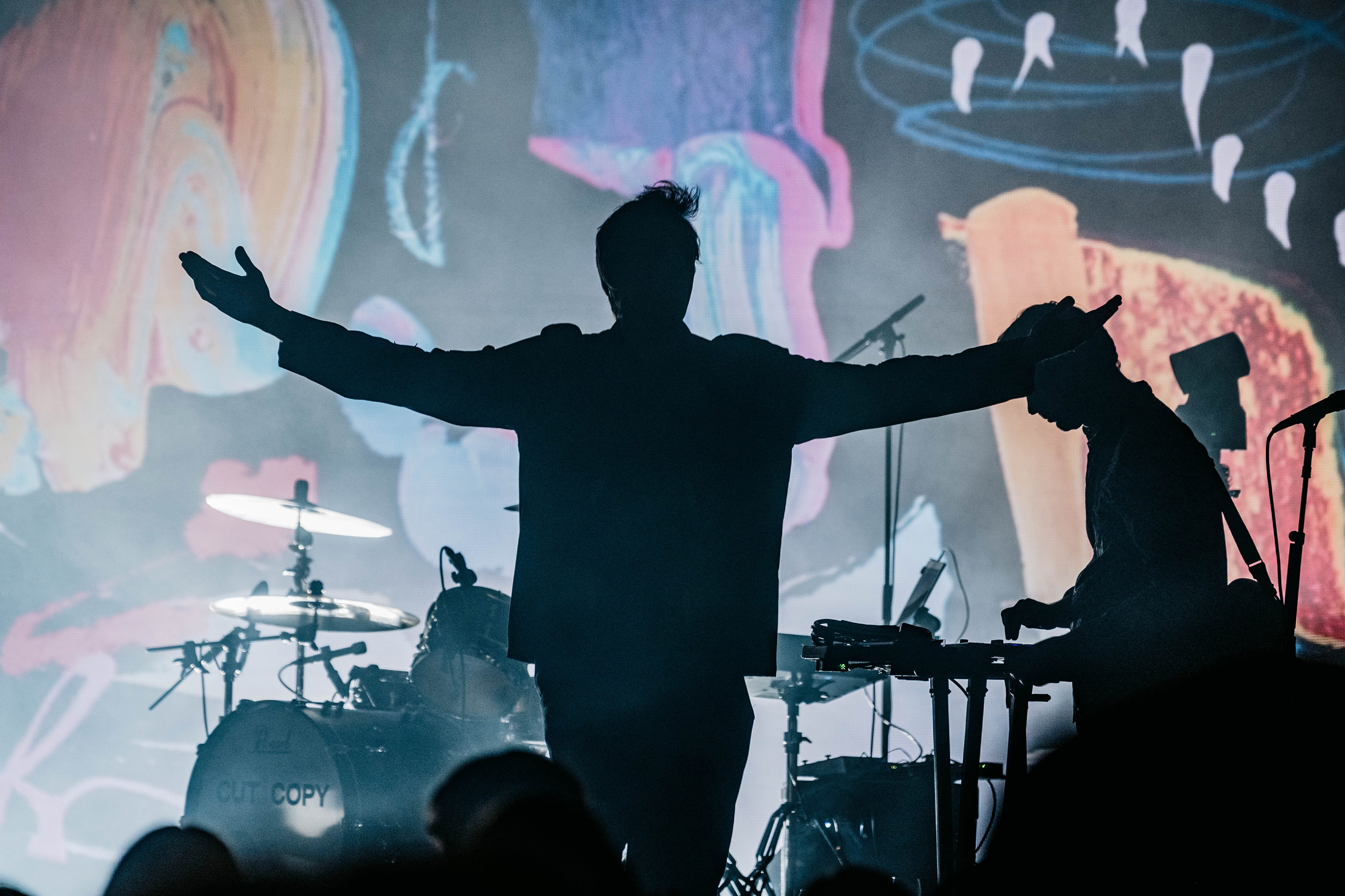
Q: Where do you see it all going next?
CC: Really I’m just keen to play some live shows now. It was long journey getting our album finished so I don’t even want to think about being in a studio for a while. After finishing an album I always need a bit of a change of scene to reset my brain, and clear space for the next thing, and performing helps with that.
I just want to get on stage and have some fun playing music with my friends, do some traveling and maybe spend some time recording my Hypernatural project in 2026. Beyond that, I guess we’ll see!


